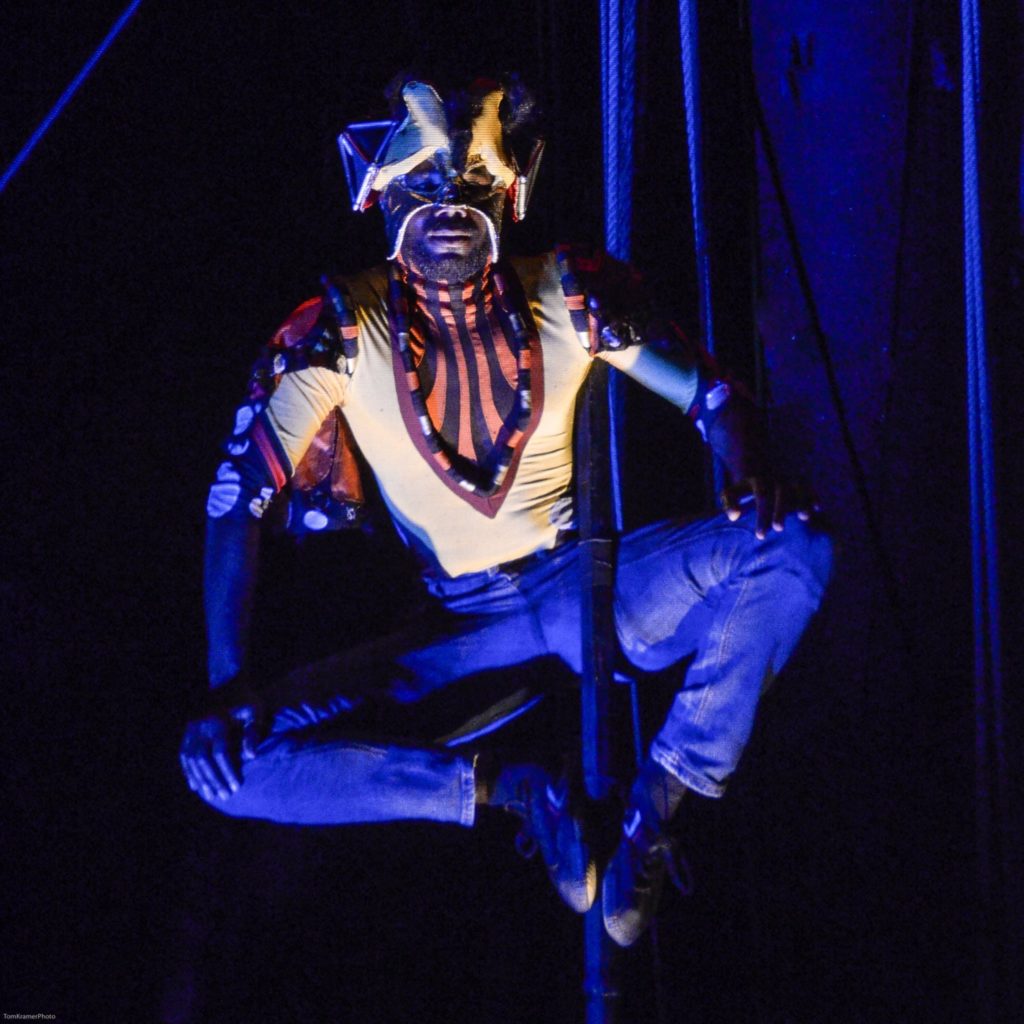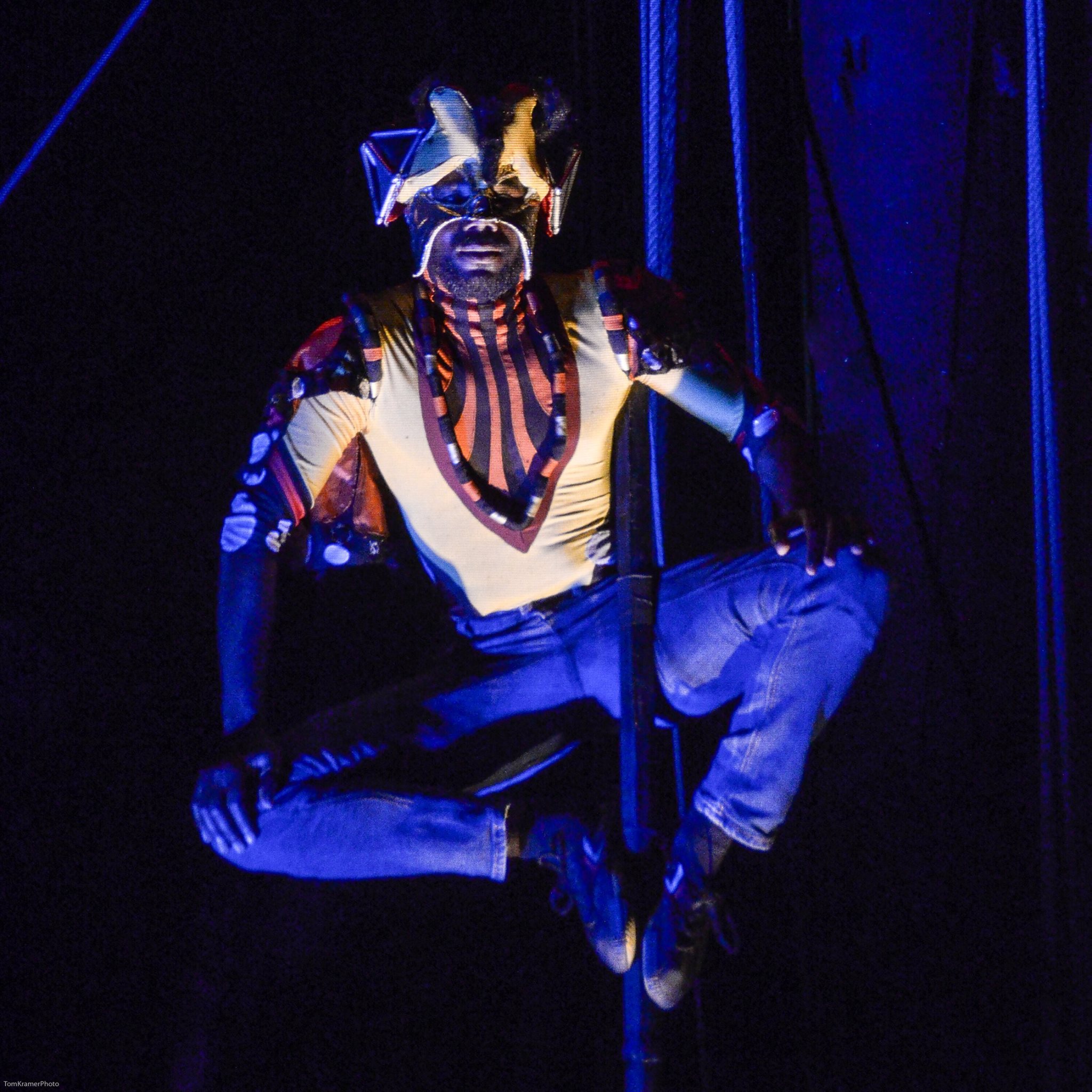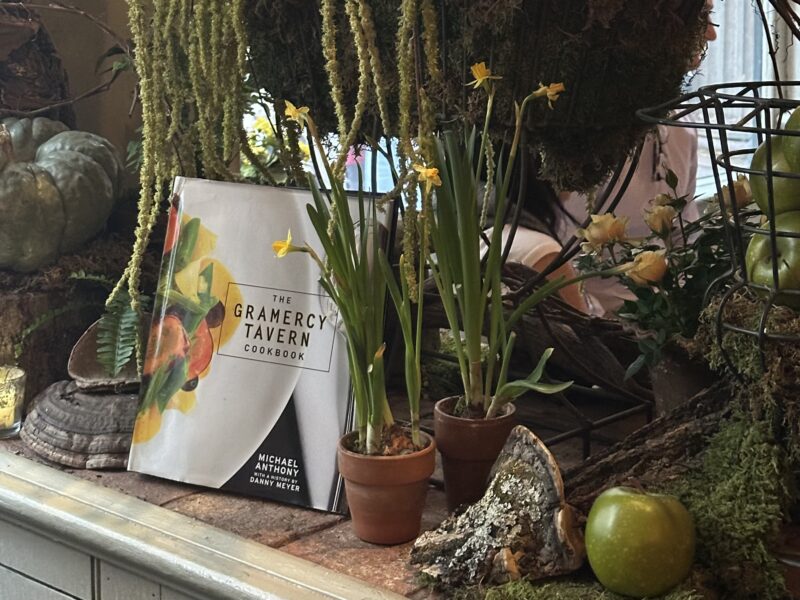
The cirque-style aerial show was complete with video projections and special effects, all aboard the 85-foot replica of a 19th-century sailing barge owned by the Caravan Stage Company.
Titled “Nomadic Tempest,” the original show debuted last week at Poynter Park, and while it wasn’t an easy story to understand, it was fun to watch.
The 100-foot theater ship’s visual special effects and projections were aimed at a massive transparent projection screen, which would have fit in well in a Pink Floyd concert.
One vocal talent, Zia Thatsall, walked amongst the spectators seated on blankets and lawn chairs as she sang in an emotionally and soulful driven voice.
The production played out more like an episode of “Mystery Science Theater” but without the comedic punchline.
The avant-garde performance was rich in potential but failed to deliver on its bohemian, dark and apocalyptic prophecy of the worldwide impact of climate change. A gourmet feast for the eyes and ears for sure, but this 75-minute play about the journey of monarch butterflies fleeing an environmental catastrophe failed to win my heart or mind.
After its performance in St. Petersburg, The Caravan will move on to locations specifically selected to represent the areas that are being most affected by rising sea levels and the realities of forced migration due to climate change.
Akin to having a group of post-graduate students gathered together at a Starbucks, The Caravan’s message of “earth first” is eager with good intentions but lacks cohesive delivery.
Sung in Arabic, Mandarin and Spanish, most of the lyrical content had to be read in subtitles just below the ship’s mast. Whether the intention of this was to make the play seem more worldly is difficult to discern. Possibly this was because if we allow the planet to be ruined, it will have a global effect. However, this took my attention away from the amazing acrobatics on stage, and I quickly lost interest in what the playwright was trying to say.
In the rare moments that I did try to follow the translated lyrics, I caught ridiculously cryptic language like, “We must escape these fossil sharks,” which sounded more like Frank Zappa lyrics than a screenwriter in a company in its 47th season.
There were too many distractions to feel compelled or moved by the “Nomadic Tempest’s” message. What the performance lacked even more than lyrical cohesion were strong and relatable characters.
The main characters, hero Kanandra and villains the SwallowWart twins were overshadowed by their ideological representations of mother nature against the oil industry. When the villains were first introduced, they were prophet hungry demigods obsessed with spoiling the environment, sounding more like comic book villains who want to be evil for the sake of being evil.
What the play lacked in plot and character, it made up for in the talent of the performers and brilliance of the set designers and animators, whose effort and skill made the show worth seeing.
A company of its size and mobility has the ingenuity to wow audiences no matter where it goes. In its tiny boat with its shoestring budget, it can create one of the most unique and rich experiences its audiences will ever see.
For all of the flaws of the “Nomadic Tempest,” what I will remember the most were the aerialists and the brilliant colors of the sets and costumes. One particular set of costumes came around the third act, where the aerialist butterflies were shown in front of a black backdrop with their wings illuminated in bright ember and emerald green. The scene stayed like that for such a long time that I began to wonder if the intention was to show just how beautiful and precious living organisms are on Earth.
Despite my problems with the performance, “Nomadic Tempest” is still on the forefront of my mind and the entire drive home, the friends and family I went with talked about what we saw. I would highly recommend that USF St. Petersburg students see this play at least once because they will never see or hear anything like it again.



